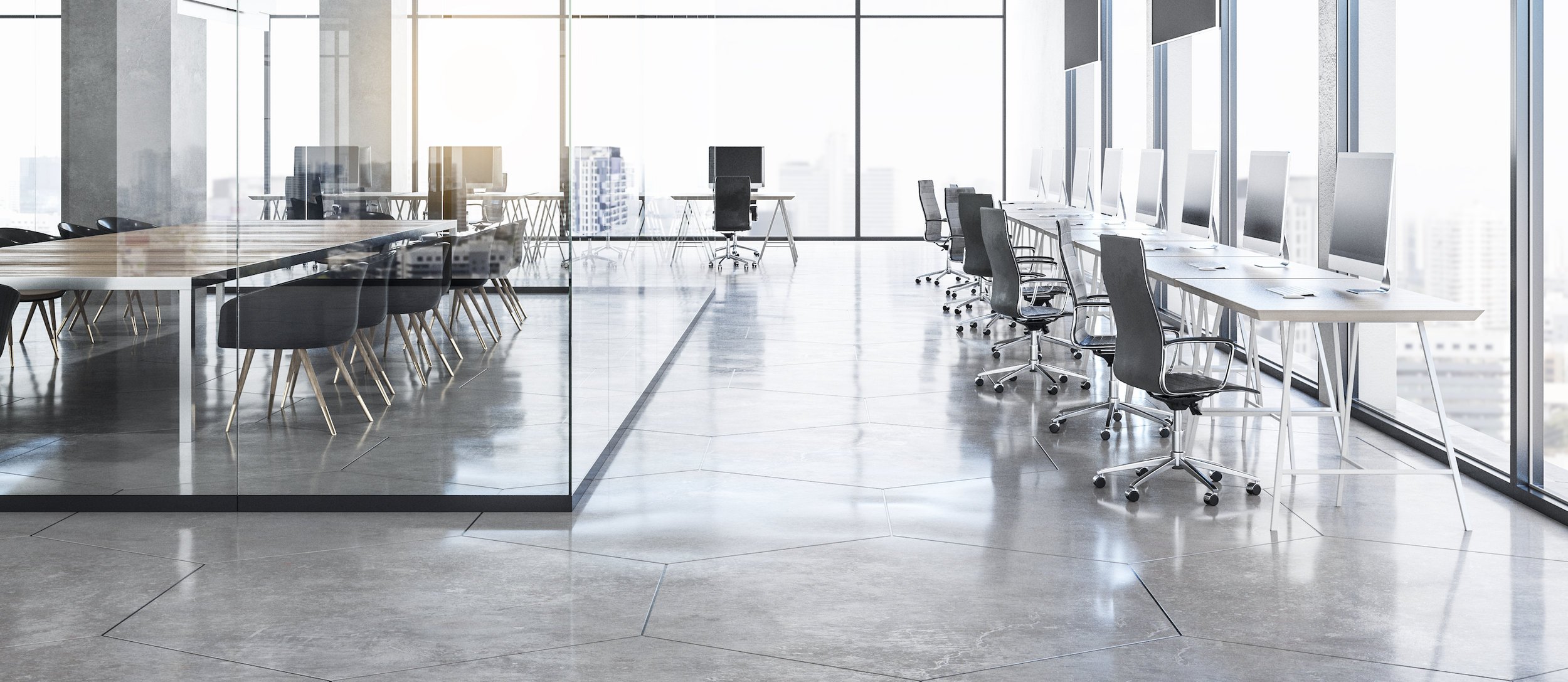
Commercial flooring
Commercial flooring specialists in the UK
-
Commercial flooring refers to the floor coverings used in commercial or public buildings, such as offices, stores, schools, hospitals, and other similar facilities. The type of flooring used in commercial spaces is typically selected based on factors such as durability, safety, maintenance, and cost.
-
Some common types of commercial flooring include:
1. Carpet tiles: Carpet tiles are a popular flooring option for commercial spaces due to their durability, versatility, and ease of maintenance.
2. Vinyl: Vinyl flooring is a low-cost and low-maintenance option that is widely used in commercial spaces due to its durability and ability to withstand high traffic.
3. Epoxy: Epoxy flooring is a durable and long-lasting flooring option that is often used in high-traffic areas in commercial spaces due to its resistance to moisture and chemicals.
4. Linoleum: Linoleum flooring is a sustainable option made from natural materials that is widely used in commercial spaces due to its durability and easy maintenance.
5. Ceramic tile: Ceramic tile is a durable and moisture-resistant option that is widely used in commercial kitchens, restrooms, and other areas where moisture is a concern.
-
Commercial flooring must meet specific requirements such as slip resistance, fire resistance, and ability to withstand heavy foot traffic, making it different from residential flooring.
Another important consideration when choosing commercial flooring is sustainability. Many commercial spaces are looking for flooring options that are eco-friendly and made from sustainable materials. For example, carpet tiles made from recycled materials, or linoleum flooring made from natural linseed oil, cork dust, and wood flour.
Commercial flooring is also typically installed in large quantities, which means that the cost per square foot can be lower than the cost of residential flooring. However, it's important to balance cost with durability and performance, as low-cost flooring may not be able to withstand the wear and tear that comes with daily use in a commercial setting.
The choice of flooring in commercial spaces often depends on the specific needs of the space, such as the type of use, budget, and desired appearance.
